
Seun Ross, PhD, describes the goals Independence Blue Cross has for improving maternal health, diabetes, cardiovascular conditions, and behavioral health.

Seun Ross, PhD, describes the goals Independence Blue Cross has for improving maternal health, diabetes, cardiovascular conditions, and behavioral health.
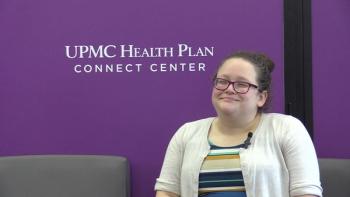
As of November 2022, the Pittsburgh Financial Empowerment Center has helped 1227 clients, saved them over $2 million, and helped reduce their debt by almost $3.5 million. Counselor Alicia Donner discusses how the organization not only provides financial assistance but also helps patients cope with unexpected health care expenses.

Lisa Kottschade, RN, CNP, FAPO, a nurse practitioner at Mayo Clinic, discussed immune-related adverse events and biomarkers in relation to melanoma treatment.

The number one ingredient that an oncology-based alternative payment model needs to succeed is collaboration, explained Nicolas Ferreyros, managing director of policy, advocacy, and communications, Community Oncology Alliance (COA).

Employees want to know that their employers have a vested interest in their health, Vikki Walton, MBA, health equity leader at Mercer, explains.

Michael Petrosky, MD, of the Allegheny Health Network, spoke about how parents can prevent their child from spreading respiratory syncytial virus (RSV) and the availability of monoclonal antibodies for all infants.

Erin Gillaspie, MD, MPH, FACS, a faculty member of Vanderbilt University Medical Center’s Department of Thoracic Surgery, discussed the role of immunotherapies in lung cancer and how they are used.

In part 3 of this 4-part series, Michael Thorpy, MD, talks about advances in sodium oxybate medication formulations and how different formulations can help patients depending on their needs.

Matthew Crowley, MD, MHS, associate professor of medicine, Duke University School of Medicine, discusses telehealth initiatives at Duke Health, as well as overcoming virtual challenges and barriers that underserved and underinsured patient populations who need diabetes care face.
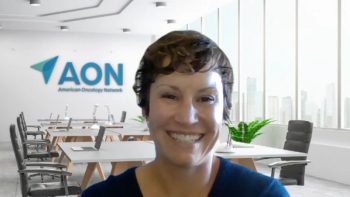
In a few short years, biosimilars have driven down total cost of care in oncology through providing competition for expensive drugs, explained Christine Pfaff, RPh, senior regional director of operations, American Oncology Network (AON).

At the Greater Philadelphia Business Coalition on Health 2023 Wellness Summit, Seun Ross, PhD, explains the business case for achieving health equity.
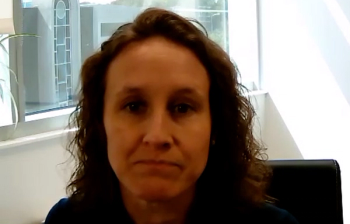
Meredith McKean, MD, MPH, the associate director of the Sarah Cannon Research Institute's Melanoma and Skin Cancer Research Program at Tennessee Oncology, discussed new melanoma studies and treatment developments.

Jennifer Sturgill, DO, inpatient medical director of population health, Central Ohio Primary Care, co-presented “Value-Based Care: What Is It and Why Should We Care?” at our most recent Institute for Value-Based Medicine® event with the Zangmeister Cancer Center of Columbus, Ohio, on September 14.

If clinicians empower individuals by giving them the appropriate tools and education to promote brain health, it can make a big difference, said Alvaro Pascual-Leone, MD, PhD.

Kristin Oaks, DO, Agilon regional medical director at Central Ohio Primary Care, spoke at our recent Institute for Value-Based Medicine® event held with Zangmeister Cancer Center. Here, she addresses the importance of value-based care within the primary care space.

The UPMC Health Plan Neighborhood Center, which first opened its doors in December 2022, offers a wide array of services to support plan members and others living in the community.

Patients now have higher expectations of us health care professionals, and we have to meet those expectations, said Donna Fitzsimons, PhD, FESC, professor of nursing at the School of Nursing and Midwifery, Queen's University Belfast.

Erin Gillaspie, MD, MPH, FACS, a faculty member of Vanderbilt University Medical Center’s Department of Thoracic Surgery, explained what testing needs to be done to identify the best treatment for patients with lung cancer.

We are in the midst of a transformative time in oncology that could also be a little scary if you are not prepared, said Nicolas Ferreyros, managing director of policy, advocacy, and communications, Community Oncology Alliance.

Javed Butler, MD, MPH, MBA, professor of medicine at University of Mississippi, president of the Baylor Scott & White Research Institute, explains how findings from the HEART-FID trial add to the value of ferric carboxymaltose injection.

Michael Petrosky, MD, of the Allegheny Health Network, discusses how monoclonal antibodies will help in the prevention of respiratory syncytial virus (RSV) in infants.

In this interview from our Institute for Value-Based Medicine® event, held in partnership with the Zangmeister Cancer Center of Columbus, Ohio, on September 14, Kristine Slam, MD, FACP, Central Ohio Surgical Associates, discusses the benefits of value-based care in the breast cancer space.

At the Greater Philadelphia Business Coalition on Health 2023 Wellness Summit, Vikki Walton, MBA, addresses the role employers have in health equity.

Susan Spratt, MD, senior medical director, Duke Population Health Management Office, breaks down the the prevalence of diabetes in the United States and discusses current diabetes initiatives at Duke Health.
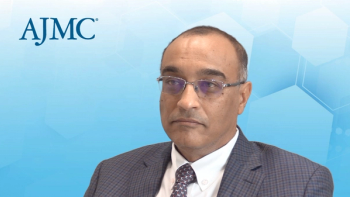
Secondary effects not only improved past 16 weeks, but showed a sustained improvement at week 56 of mavacamten, said Milind Desai, MD, MBA, director of the Hypertrophic Cardiomyopathy Center and vice chair of education at the Heart, Vascular & Thoracic Institute, Cleveland Clinic.

"Even though awareness was increasing, it wasn't translating into action," Taylor-Desir explains. "We know from our experience as physicians, that physical health and mental health are tied."

"We really have to work on our implicit bias, acknowledging it, understanding it, and doing the work to try to change it," Veronica Gillispie-Bell, MD, MAS, says.
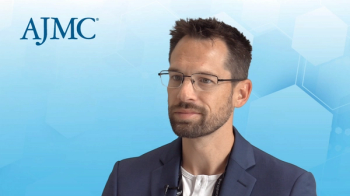
Despite not reaching statistical significance, findings from DICTATE-AHF show early dapagliflozin improved decongestion and led to earlier hospital discharge for patients with acute decompensated heart failure, explained Zachary Cox, PharmD, professor at Lipscomb University College of Pharmacy.

A recent CDC study revealed that reports of mistreatment and discrimination during maternity care were high among Black, Hispanic, and multiracial respondents.

Michael Petrosky, MD, of Allegheny Health Network, spoke about the difference between vaccines and monoclonal antibodies and how they can affect treatment in respiratory syncytial virus (RSV).

259 Prospect Plains Rd, Bldg H
Cranbury, NJ 08512
© 2025 MJH Life Sciences®
All rights reserved.
